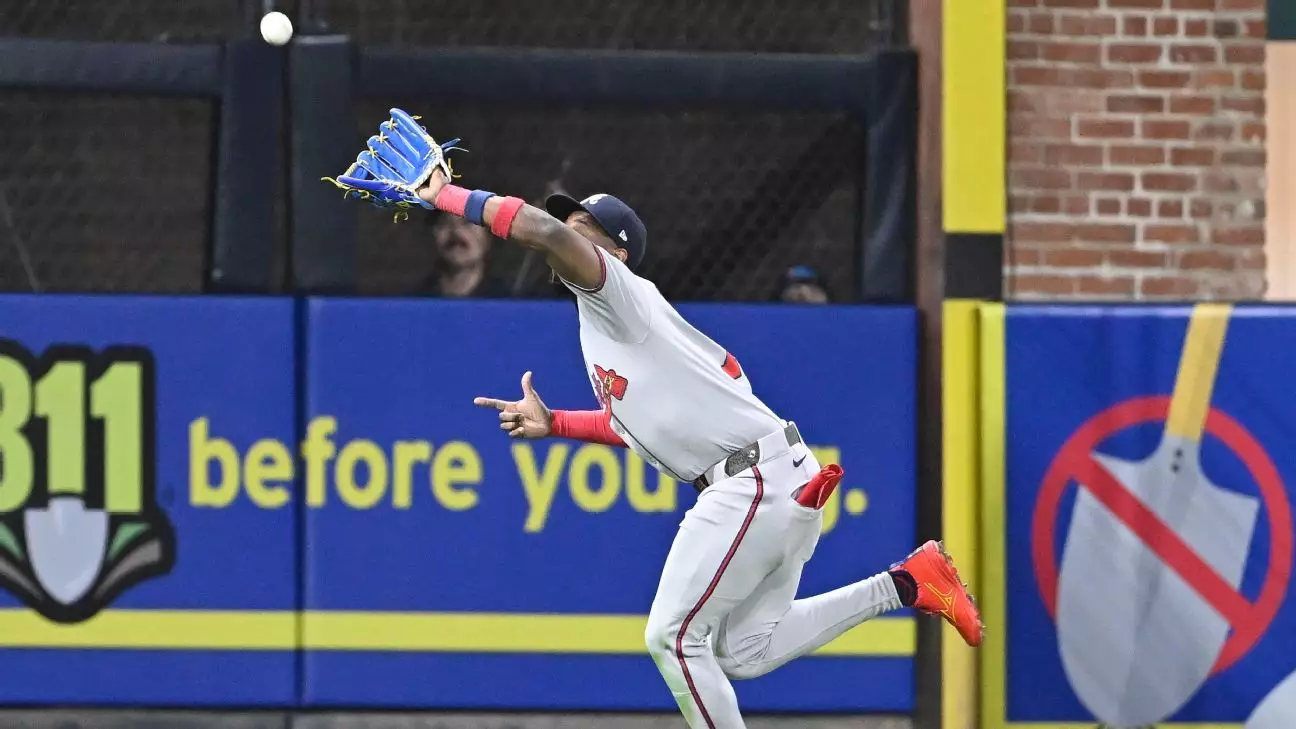The world of professional sports is often painted in glitter and glamor, but it harbors an uncomfortable underbelly of sacrifice, competition, and unfortunately, the occasional scandal. The recent positive test of Jurickson Profar for a banned substance has cast a long shadow over the Atlanta Braves and left fans reeling. This isn’t just another case of an athlete pulling the wool over the audience’s eyes; it’s a stark reminder of the pressures athletes face in a culture relentless in its demand for peak performance. Profar’s 80-game suspension for testing positive for chorionic gonadotropin (hCG), a performance-enhancing drug, is a sobering moment not only for him but also for the franchise and its supporters.
The Weight of Expectations
Profar, at 32, was a beacon of hope when the Braves signed him to a three-year, $42 million deal after his standout season. Having slashed .280/.380/.459 and belted 24 home runs, he epitomized what it means to be a consummate player—one who melds skill with charisma. But to what extent do these accolades mean when faced with the reality of a suspension? The pressure to perform is not merely self-imposed; it radiates from management, fans, and the unyielding spectacle of major league baseball. Profar’s heartfelt lament about his love for the game feels painfully ironic now as he faces the music.
When Profar publicly expressed his devastation and sorrow, claiming that he never knowingly cheated, it reverberates with an all-too-common narrative in sports today, one that is both heartbreaking and frustrating. There’s a dichotomy at play here: the athletes’ genuine passion tormented by systems fraught with ethical dilemmas. Are they truly culpable, or are they mere products of a cutthroat culture that glorifies victories over integrity?
Impact Beyond the Field
The ramifications of Profar’s suspension stretch far beyond the player’s personal tragedy. The Braves have stumbled out of the gate, swallowed in the wake of a dismal performance, having been swept by the Padres in a humiliating series. With Profar out of the lineup, not to mention Ronald Acuna Jr.’s ongoing absence from injury, it’s hard not to feel a sense of impending doom as the team’s playoff aspirations hang in the balance. The short-sightedness of the decision to bring in players like Stuart Fairchild points to underlying chaos, revealing perhaps a fundamental issue within the organization.
The MLB Players’ Association spoke out in Profar’s defense. Yet, in an era of heightened scrutiny regarding doping and performance enhancement, the skeptics will inevitably emerge. Who will believe that a player wasn’t aware of the substance, especially when the stakes are so high? The shadow of suspicion has reawakened in the union between fans and players, intensifying the already high tension in an industry built on trust.
A Complicated Legacy
Profar is not the first athlete to succumb to the temptations of enhancement nor will he be the last. Each time an athlete falls, it creates a ripple effect that taints the league’s image and raises complex legal and moral questions. The definition of ‘cheating’ blurs when the line between performance and enhancement grows thin. Profar’s case stands as a poignant study in athletes’ struggles with their own humanity. Do they sacrifice their integrity for fleeting moments of glory?
Baseball holds a storied tradition, and the nostalgia surrounding the game often blinds us to its grim realities. Profar’s saga is a critical lens into the pressures athletes face—a clash of passion, desperation, and a crusade against the odds. Will this situation serve as a wake-up call to rethink how we honor and support our sports figures? Or will it simply become another tale in the annals of the game, quickly overshadowed by the highlights of the next star? Only time will tell, but one thing is certain: the battle between the quest for greatness and the integrity of the sport is more precarious than ever.


Leave a Reply